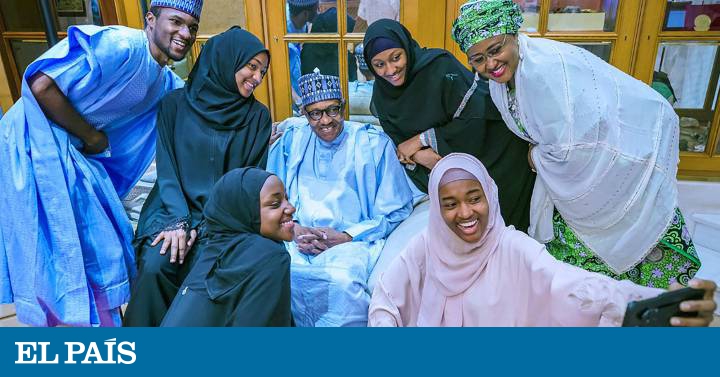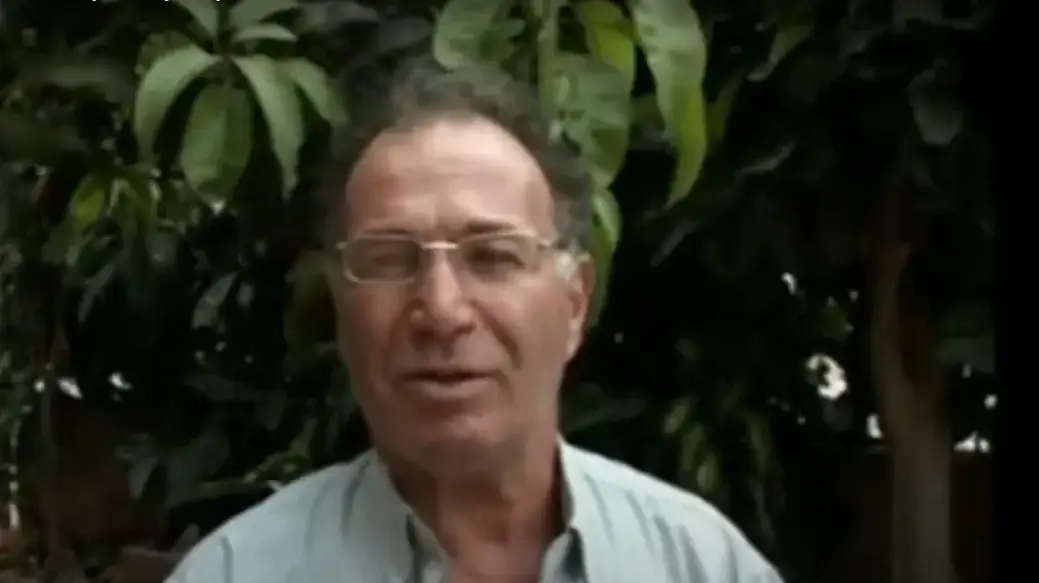Muhammadu Buhari himself, the President of Nigeria, had to publicly deny that he was a double of himself. It may seem like a joke, but it is simply political communication. It was December 2018 and the candidates were taking positions for the presidential elections that were held in February 2019. One of the strategies was the dissemination of hoaxes and in what was known as the case of the “Buhari clone”, the rumor reached such dimensions that forced the affected to step out. The full story pointed out that the president had died on a trip abroad and that he had been replaced by a character who was baptized "Jubril of Sudan", trying to increase credibility. One of the main channels of expansion of the hoax was WhatsApp that got the rumor to jump to some religious leaders and from there to the mainstream media. This is one of the episodes that explains the growing importance of the messaging platform in electoral contexts.
MORE INFORMATION
- "Every time the Internet is cut, it is the confession of the failure of a government"
- The fight against covid-19 in Africa that comes via mobile
- Coronavirus does not affect blacks and other dangerous hoaxes
"WhatsApp has been shown to be a fundamental element in the flow of information and disinformation around the world," says Idayat Hassan, "and in the case of Nigeria it appears as a very easy-to-use tool." This is the perception that led the Center for Democracy and Development (CDD), the think tank led by Hassan, to investigate in depth the role of the message platform in political communication in the most populous country in Africa. "We have verified that Nigerians replicate their social circles on WhatsApp, religious, family, work, political groups ... And that they participate intensively in conversations with hundreds of members. So we believed that it was a necessity to carry out a serious investigation into the use of WhatsApp in the Nigerian elections, because if the forecasts were met, its use in the political sphere would be very significant, ”he points out.
In 2015, the politics of the first African economy turned to the digital environment. The elections in which Muhammadu Buhari defeated Goodluck Jonathan were largely waged on social media. Shortly afterwards it became known that the interest to dominate the discourse on the Internet even led to the controversial Cambridge Analytics deploying its manipulation strategies on behalf of the losing candidate. Beyond the electoral context, social media has shown that it can trigger storms in the Nigerian giant, as revealed by a BBC investigation into an episode of intercommunity violence in Plateau state in 2018 that originated in Facebook posts.
It is not surprising that the CDD wanted to shed more light on the dynamics of WhatsApp, which also has the distinction of being a private communication tool, unlike the most popular social networks and therefore more difficult to monitor. They have done this by putting behaviors under the microscope during the presidential elections of February 2019. The results of that research, carried out together with the University of Birmingham, help to understand the future of political communication in Nigeria and in other countries of the continent, but also to tackle serious threats to coexistence.
The researchers found that the campaign teams of the two candidates, Muhammadu Buhari and Atiku Abubacar, deployed a strategy with squads of volunteers, paid influencers and digital careerists, to get WhatsApp to amplify their speech, discrediting the included opponent. "At the national level, presidential candidates have developed sophisticated social media equipment that transmits messages to thousands of followers through interconnected WhatsApp groups," the report states.
This conclusion may seem strange considering the private nature of communication through the instant messaging platform. However, it is understood when researchers detail the use of the tool. 73% of respondents were in groups with more than 50 members. "Most of the respondents belonged to groups in which they did not personally know all the members," the authors explain. And they add that these spaces "allow an individual to reach a significant audience very quickly through an informal network of groups."
Manipulation, spreading fake news and messages that dynamite coexistence are the fundamental concerns of using WhatsApp as a political communication tool.
The study proposes a dissemination model: “If you are in four groups, each of which has a capacity of 256 users, you can reach a thousand people by sharing a message in those forums. The pyramid effect assumes that if 10% of the members of those four groups share the message with four other groups, that message may end up being seen, directly, by 104,000 people. ” Although the authors acknowledge that it is an "extreme" model, it allows us to understand why WhatsApp is a basic tool in a campaign.
Manipulation, the spread of fake news and messages that dynamite coexistence are the fundamental concerns of using WhatsApp as a political communication tool. And in that sense, the CDD report does not have a categorical answer: "WhatsApp has transformed the electoral environment, but it has not revolutionized it." The document qualifies the role of the tool, because it reflects the social dynamics installed outside the digital environment. "They reproduce the existing client networks," he says. Such interaction in large groups responds to "strong and extensive offline social structures and networks, such as religious groups, alumni associations, or the extended family." And on the other hand, because "rumors and disinformation were an integral part of Nigerian politics before the arrival of social networks." Or as one of the respondents noted: "The range and speed are new, but the rumors are old."
This is how WhatsApp broke into the 2019 campaign, through massive groups, some created by the teams of the candidates to transmit their messages, others infiltrated by sympathizers, to filter their speeches and information more or less manipulated on the networks. Among those infiltrators, there were recruited militants or propagandists, but also opportunists willing to please politicians and get rewards by claiming digital deeds. For this reason, not even the campaign teams manage to control all the information that is transmitted through these informal networks. At the same time, the parties try to formally detach themselves from these tools, arguing that they are citizens acting on their own. This is how complex and nuanced the new pearl system of political communication in Nigeria is.
Idayat Hassan makes an effort to synthesize the role of WhatsApp in spreading false information: “It does the job faster, easier and cheaper. For example, the possibility of using voice messages has made it a propaganda weapon in northern Nigeria where they love radio and oral information. At the same time, it has made its way among a large number of citizens who do not have the resources or capacity to use the other large platforms such as Facebook and Twitter. Even in the most rural areas of the state of Bayelsa, in the south, they receive information from the capital as it is transmitted, whether true or false. This unprecedented level of reach means that disinformation can be more effective because it reaches more people. Thus, WhatsApp expands the effect of false information. "
Despite everything, it appears as a tool with positive potential in political communication. "The positive effects," explains the director of the CDD, "lie in its ability to facilitate communication, erase the effect of distance and bring groups and communities together. WhatsApp provides a secure form of communication and can be a tool not only to counter misinformation, but also to spread positive stories. Furthermore, fact-checkers around the world have shown that it can also act as a portal for citizens to contrast information and report falsehoods. ”
Perhaps, because of that confidence in the positive potential of the tool, one of the bets of the CDD is education for its proper use. "WhatsApp should be part of a comprehensive program aimed at educating citizens so that they can cope with the growing amount of information that is available online," explains Idayat Hassan, who recalls that the private nature of communication on the platform makes it more difficult to establish controls and more necessary to give tools to users.
Some of the experiences in the Nigerian context advance dynamics that later spread to other countries and the role of WhatsApp evidenced by the CDD report may be one of them, without forgetting that it is the most popular messaging platform in 40 African countries and the most downloaded application in 70% of the continent. "It can be projected", Hassan advances, "to countries that share a political, social and economic reality. In a recent study in The Gambia, we have detected extensive chains of organized networks that used WhatsApp as a means of propaganda dissemination. The Gambia and Nigeria are at very different political points, but they share the high price of the Internet, political mistrust, high levels of poverty and social inequality, and multiple ethnic groups, for example. ” "Although it is not just about the African context, but rather similar dynamics have been seen in Brazil or India as well," warns the Nigerian expert.
You can follow PLANETA FUTURO on Twitter and Facebook and Instagram, and subscribe here to our newsletter.









